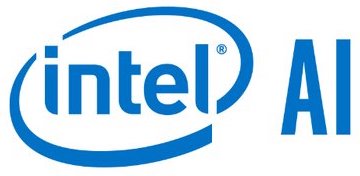
ICLR2019 Workshop
Our workshop "AI for Social Good" will focus on applying artificial intelligence to solve problems important for society. The focus is on machine learning for the following areas: education, protecting democracy, urban planning, assistive technology for people with disabilities, health, agriculture, environmental sustainability, social welfare and justice and, sustainable development We believe that these fields are those where AI can have its strongest impact on society by reducing human suffering and improving democratic institutions. This workshop builds on our AI for Social Good workshop at NeurIPS 2018.
If managed correctly, the rapidly expanding field of AI has the potential to improve many aspects of our lives. However, two main problems arise when attempting to tackle social issues. First, there is often little incentive for researchers to tackle social problems as there are few conferences and journals that explicitly deal with such issues. Second, it is also difficult for researchers seeking to have a social impact to find problems to address. The convening of this workshop addresses these problems by networking impactful researchers and providing a venue for presentation.
This workshop brings together machine learning researchers, social impact leaders, stakeholders, government and policy leaders, and philanthropists to present and discuss ideas and applications linked to social issues, similarly to the AI Commons project. We are partnering with AI Commons so that accepted proposals are invited to submit their work there. Moreover, the workshop inspires the creation of new tools by the community to tackle critical problems. We also wish to promote the sharing of information and datasets that might prove relevant to researchers who share our goals.
We invite contributions relating to at least one of the previously mentioned domains. The models or approaches presented do not necessarily need to be of outstanding theoretical novelty, but should demonstrate potential for a strong social impact. We especially encourage work where machine learning and in particular representation learning could meaningfully amplify existing efforts for social good. We invite two types of submissions:
Short Papers Track (Up to four page papers + unlimited pages for citations) for oral and/or poster presentation. The short papers should focus on past and current research work, showcasing actual results and demonstrating beneficial effects on society. We also accept short papers of recently published or submitted journal contributions to give authors the opportunity to present their work and obtain feedback from conference attendees.
Problem Introduction Track (Application form, up to five page responses + unlimited pages for citations) which will present a specific solution that will be shared with stakeholders, scientists, and funders. The workshop will provide a suite of questions designed to: (1) estimate the feasibility and impact of the proposed solutions, and (2) estimate the importance of data in their implementation. The application responses should highlight ideas that have not yet been implemented in practice but can lead to real impact. The projects may be at varying degrees of development, from formulation as a data problem to structure for effective deployment. The workshop provides a supportive platform for developing these early-stage or hobby proposals into real projects. This process is designed to foster sharing different points of view ranging from the scientific assessment of feasibility, discussion of practical constraints that may be encountered, and attracting interest from philanthropists invited to the event. Accepted submissions may be promoted to the wider AI solutions community following the workshop via the AI Commons, with whom we are partnering to promote the longer-term development of projects.

